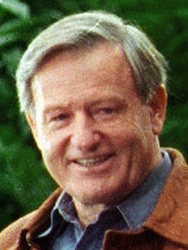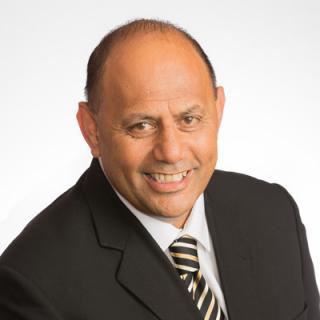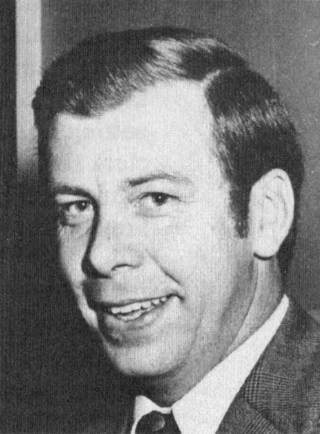
Sandra Rose Te Hakamatua Lee-Vercoe is a former New Zealand politician and diplomat. She served as deputy leader of the Alliance party and was later High Commissioner to Niue.
The Alliance was a left-wing political party in New Zealand. It was formed at the end of 1991 by the linking of four smaller parties. The Alliance positioned itself as a democratic socialist alternative to the centre-left New Zealand Labour Party. It was influential throughout the 1990s, but suffered a major setback after its founder and leader, Jim Anderton, left the party in 2002, taking with him several of its members of parliament (MPs). After the remaining MPs lost their seats in the 2002 general election, some commentators predicted the demise of the party.

The 1987 New Zealand general election was a nationwide vote to determine the shape of the 42nd sitting of the New Zealand Parliament. The governing New Zealand Labour Party, led by Prime Minister David Lange, was re-elected for a second term, although the Opposition National Party made gains. The election also saw the elimination of the Democratic Party from Parliament, leaving Labour and National as the only parties represented.

The 1984 New Zealand general election was a nationwide vote to determine the composition of the 41st New Zealand Parliament. It marked the beginning of the Fourth Labour Government, with David Lange's Labour Party defeating the long-serving Prime Minister, Robert Muldoon, of the National Party. It was also the last election in which the Social Credit Party won seats as an independent entity. The election was also the only one in which the New Zealand Party, a protest party, played any substantial role.

Sir Wallace Edward Rowling, commonly known as Bill Rowling, was a New Zealand politician who was the 30th prime minister of New Zealand from 1974 to 1975. He held office as the leader of the Labour Party.

The 1993 New Zealand general election was held on 6 November 1993 to determine the composition of the 44th New Zealand Parliament. Voters elected 99 members to the House of Representatives, up from 97 members at the 1990 election. The election was held concurrently with an electoral reform referendum to replace the first-past-the-post system, with all members elected from single-member electorates, with mixed-member proportional representation. It saw the governing National Party, led by Jim Bolger, win a second term in office, despite a major swing away from National in both seats and votes, and the carrying of the referendum by 53.9% to 46.1%.

The 39th New Zealand Parliament was a term of the Parliament of New Zealand which began with the general election held on 25 November 1978, and finished with the general election held on 28 November 1981. The dates of the Muldoon Ministry were from 13 December 1978 to 11 December 1981.

William Wakatere Jackson is a New Zealand politician and former unionist, broadcaster and Urban Māori leader. He was a Member of Parliament for the Alliance from 1999 to 2002 and is currently a Labour Party MP, having been re-elected in 2017.

Māori politics is the politics of the Māori people, who were the original inhabitants of New Zealand and who are now the country's largest minority.

Mana Māori Motuhake was a Māori political party in New Zealand from 1980 to 2005. The name is difficult to translate accurately, but essentially refers to Māori self-rule and self-determination — mana, in this context, can be understood as "authority" or "power", while motuhake can be understood as "independent" or "separate". The purpose of the party was to unify Māori to gain 'political potency'. From 1991 to 2002, the party participated in the left-wing Alliance.

Matiu Waitai Rata was a Māori politician who was a member of the New Zealand Parliament for the Labour Party from 1963 to 1980, and a cabinet minister from 1972 to 1975. In 1979 he resigned from the Labour Party and formed the Mana Motuhake Party.

Tāpihana Paraire "Dobbie" Paikea, also known as Dobson, was a New Zealand politician and Rātana morehu who won the Northern Maori electorate for Labour in 1943. He was a Māori of Te Roroa, Te Parawhau and Ngāti Whātua descent. He was elected following the death of his father Paraire Karaka Paikea who had been the MP, and he held the parliamentary seat until his own death in 1963.
Bruce Craig Gregory was a New Zealand politician of the Labour Party.

Melvyn Francis Courtney is a New Zealand politician. He is a Nelson City Councillor and a former Labour then Independent Member of Parliament for Nelson, in the South Island of New Zealand.
Western Maori was one of New Zealand's four original parliamentary Māori electorates established in 1868, along with Northern Maori, Eastern Maori and Southern Maori. In 1996, with the introduction of MMP, the Maori electorates were updated, and Western Maori was replaced with the Te Tai Hauāuru and Te Puku O Te Whenua electorates.
Northern Maori was one of New Zealand's four original parliamentary Māori electorates established in 1868, along with Eastern Maori, Western Maori and Southern Maori. In 1996, with the introduction of MMP, the Maori electorates were updated, and Northern Maori was replaced with the Te Tai Tokerau electorate.

The Northern Maori by-election of 1963 was a by-election for the electorate of Northern Maori on 16 March 1963 during the 33rd New Zealand Parliament. The by-election resulted from the death of the previous member Tapihana Paikea on 7 January 1963. It was held the same day as the Otahuhu by-election.

The Mana Motuhake leadership election, 2001 was held in New Zealand on 2 June 2001 to determine the future leadership of the Mana Motuhake political movement. The election was won by List MP Willie Jackson.
Mana motuhake is a phrase in the Māori language that means self determination, with the principle being autonomy and control. It is sometimes translated to the concept of sovereignty.














